Forced to go to Spain, but Charlie Teo’s ‘given us our Angie back’
Angie MacPherson’s family was brought to tears seeing her eat a piece of toast — because it was the first solid food she had been able to stomach in more than a year.
NSW
Don't miss out on the headlines from NSW. Followed categories will be added to My News.
Angie MacPherson’s family was brought to tears seeing her eat a piece of toast – because it was the first solid food she had been able to stomach in more than a year.
And then of course there was the whole high-risk brain surgery she had just undergone in a Spanish hospital, because no doctor in Australia would touch her.
It cost Angie and her family more than $100,000 to travel there and have an operation by doctors under the supervision of Dr Charlie Teo.
The 22-year-old was forced to make the gruelling three-day journey to Spain, unable to walk and in cognitive decline due to symptoms caused by a debilitating 2cm bi-lobed cystic mass.
Since her diagnosis two years ago Angie had been unable to see properly, plagued with constant visual disturbances such as visual “snow,” extreme distortions and auras, and shaking of her vision. She calls them “brain shakes”.
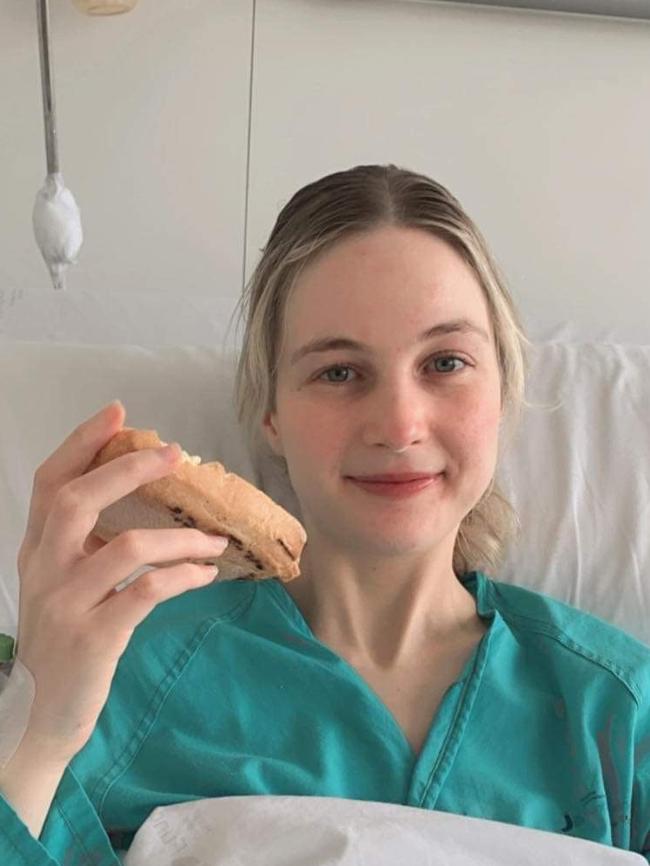
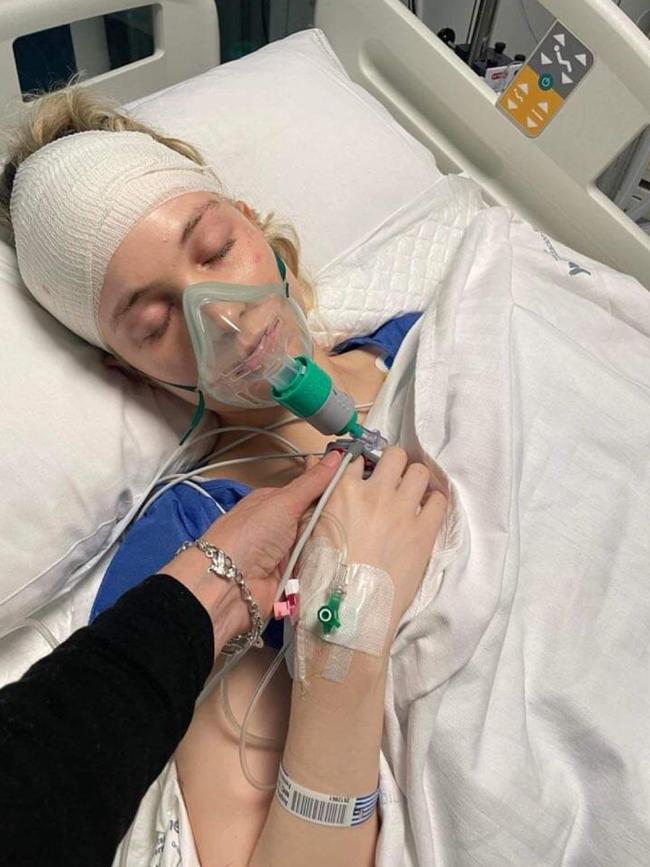
She has had episodes of extreme vertigo, dizziness, terrible headaches and weakness, tingling and numbness in limbs, random convulsions, disorientation, memory loss to the point where she couldn’t remember her last sentence at times, continuous neck and spine pain as part of an array of other symptoms.
Her sister Jazz told The Sunday Telegraph that Angie had been forced to drop out of university and had become bedridden most days.
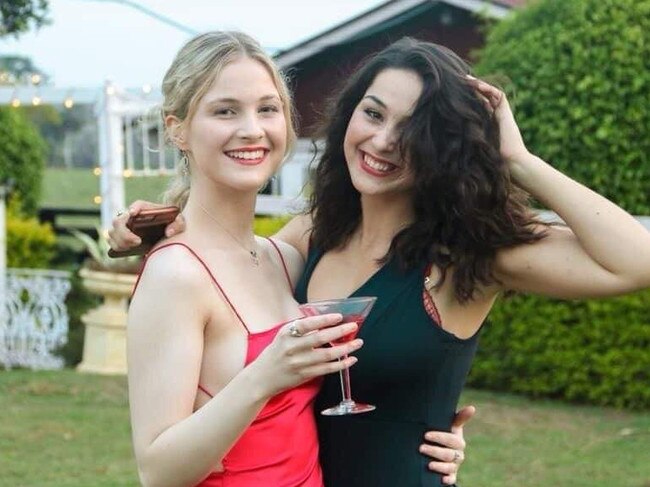
“These symptoms rendered my beautiful sister unable to function and unable to enjoy life,” she said.
Angie tried every option available to her in Australia and saw every specialist.
“It became clear that our only remaining option and hope for Angie to restore her quality of life was brain surgery to remove the tumour,” Jazz said.
Dr Teo is unable to perform the surgery in Australia because of the restrictions placed on him by the Australian Health Care Complaints Commission.
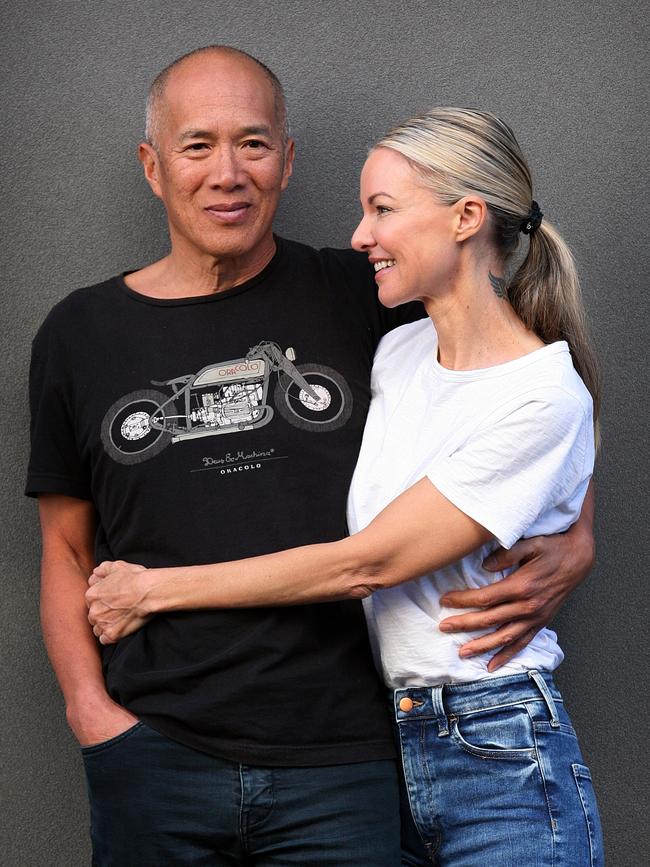
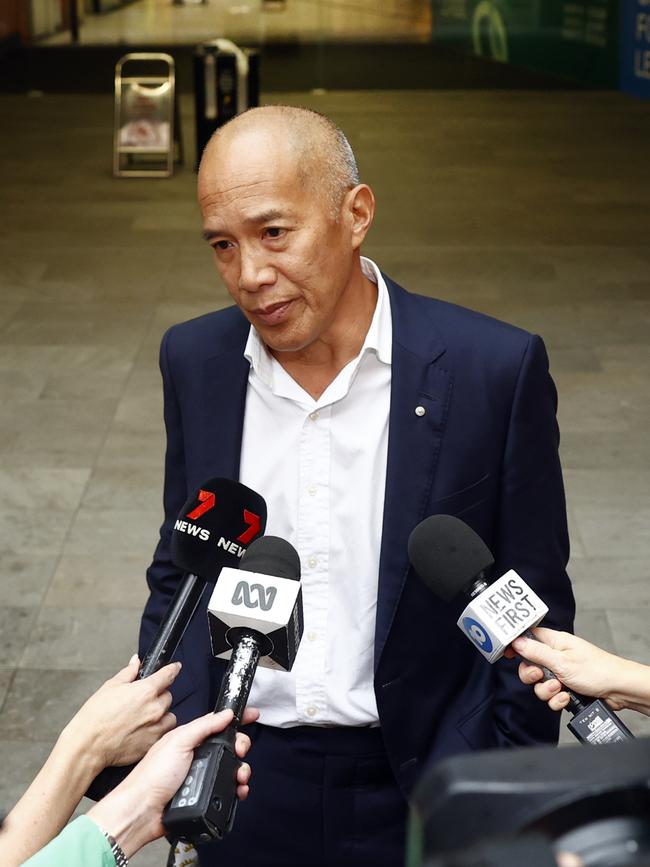
He must be supervised on high-risk surgeries but nobody in Australia is willing to be his supervisor.
In the hours after Angie’s surgery this week, Dr Teo showed Angie’s mum the post-surgery scan.
“Where the bi-lobed cystic mass used to be, it now appears it was never there,” her relieved mum said, speaking from Angie’s bedside in Spain.
“They didn’t even cut one vein or destroy any normal brain despite how intertwined the mass was to these vital structures.
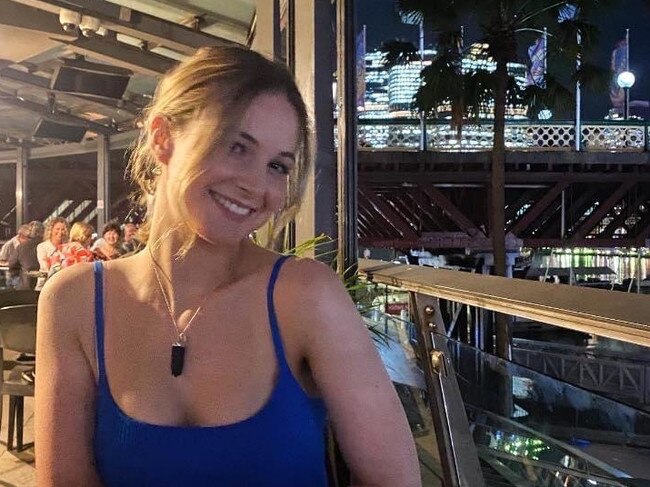
“Plus it was a combination of cystic and solid tissue stuck to surrounding thin-walled veins, which made the surgery extremely intricate and complex. These details, to me, really highlight Charlie and his team’s extraordinary talent.”
In an update eight hours later, Angie’s pain and nausea were settling and “she’s noticing all kinds of unexpected improvements already”.
“She loved eating today for the first time in about a year. So many wonderful changes despite the challenges, which will be behind her in a few days,” her mum said.
Jazz was on the phone as their mum tried to see Angie immediately after surgery.
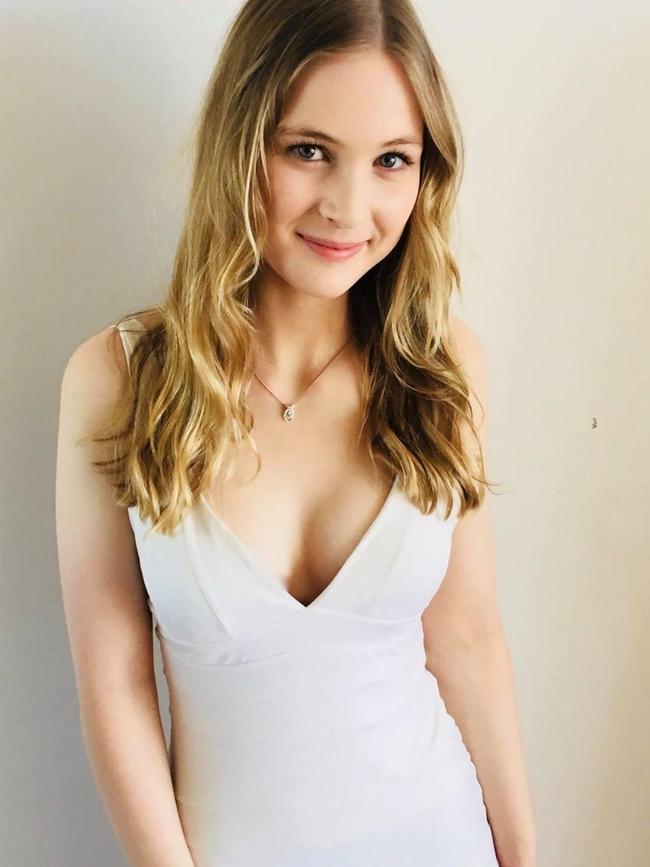
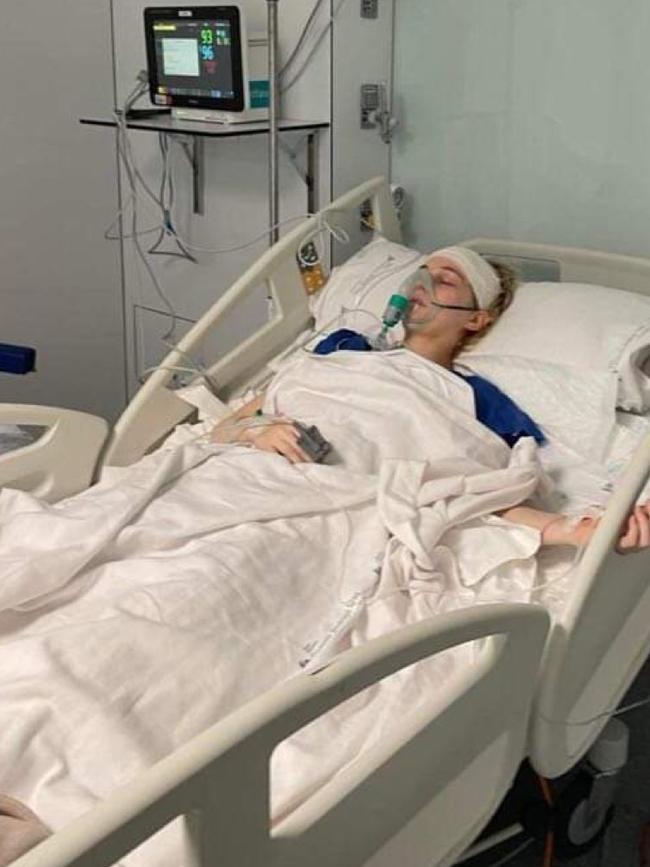
“The incredible miracle is that my sister woke up out of two and a half hours of complex brain surgery with none of the terrifying adverse outcomes she was persistently warned of.”
Jazz said, one day post-surgery, Angie sounded like her baby sister again.
“Despite recovering from brain surgery I could hear her clarity of mind had returned,” she said. “Mum sent me a photo. She had colour in her face again, something we hadn’t seen for years. I had my sister back.
“She was gaining her life back. And all of this was because a man by the name of Charlie Teo, who our country has banned from saving lives, achieved the impossible.”
Each day Angie feels stronger, with less nausea and “more normal” than she has felt in two years.
She is sleeping all night, eating proper food and her constant, severe neck and head pain are gone.
“My first thought when waking up was extreme gratitude for having my sight,” she told The Sunday Telegraph.
“Charlie was very adamant on explaining every single risk that the surgery could result in, one of which being blindness.
“Not only could I see but Charlie preserved every single function of my brain when other Australian neurosurgeons told me a surgery in that part of the brain would turn me into a vegetable.”
Angie insisted she didn’t want people to think Dr Teo recommended surgery as a first option.
“He was very clear that surgery was a last resort and insisted that I see many other doctors to exclude conditions that might have been responsive to more conservative treatments such as medications,” she said.
“We met with him on many occasions before deciding on surgery and, at every consultation, he was always very honest about the risks and potential benefits of such a procedure.”
Angie said she felt like “shouting from the rooftops” her thanks to Dr Teo.
“It baffles me that I had to suffer through the trauma of travelling to a foreign country to get surgery with one of the world’s best neurosurgeons who is Australian,” she said.
“But I am just so thrilled he gave me this chance at a normal life.”
The indications and results of the operation Dr Teo and his team performed have been published in two peer-reviewed journals.
Dr Teo, who was forced to consider overseas options after the conditions imposed on him made it impossible to work in Australia, has recently worked in Brazil and, after Spain, is headed to Peru.
One of Brazil’s most reputable and senior neurosurgeons Marcus Wagner invited Dr Teo to Brazil after attending one of his online classes.
Dr Teo accepted and worked pro bono, operating and teaching surgeons new techniques.
From Brazil, he told The Sunday Telegraph last month about a patient, a 38-year-old mother with new onset seizures.
“The tumour was in an area that could cause language and visual problems if approached the standard way,” Dr Teo said.
“I showed them another way that avoided these eloquent areas. The pathology is not back yet, but we are hoping it will be benign.
“Everyone’s happy. The surgeons have learnt a new operation, the patient is in perfect neurological condition, and the discipline has been advanced.”
In response to criticisms from Australian media about allowing Dr Teo to operate in his hospital, Dr Wagner said: “We are adults here, and we make up our own minds about the credibility or otherwise of fellow colleagues.
“As neurosurgeons, we have the lives of those suffering from a terrible disease in our hands, and despite our best efforts, sometimes the disease wins, and we lose. It’s never intentional, and we all have our fair share of bad outcomes.”
Dr Wagner said Dr Teo had an “excellent reputation across the world that has been created from decades of teaching, lecturing, and personal interactions. Please let us be the judge of his integrity.”
In Peru, Dr Teo has been invited to help with brain tumour cases.
Alberto Ramirez Espinoza has invited Dr Teo to operate while he is in Peru next week to also speak on gliomas of the brain stem in pediatrics and keyhole surgery techniques.
The Health Care Complaints Commission found Dr Teo guilty of unsatisfactory professional conduct for “not exercising appropriate Judgement” after complaints from families of two patients with devastating outcomes. Dr Teo has publicly denounced those findings.





